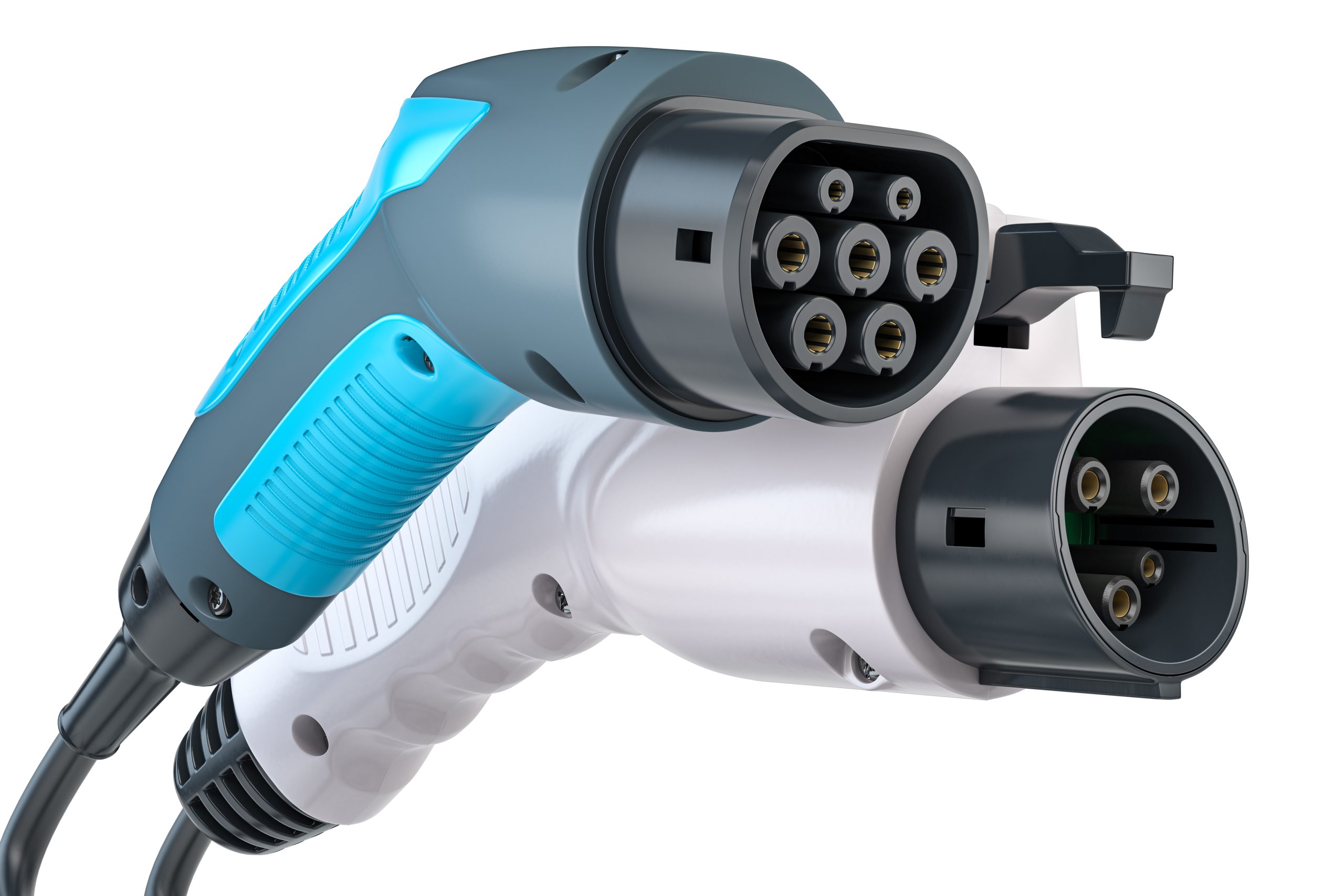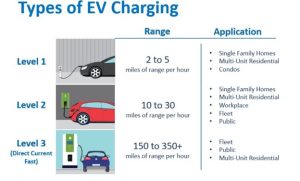
Internal combustion engines for automobiles have been around for many years, and the industry has developed a fueling infrastructure to support all the vehicles that are currently produced. But with the recent rise in production of electric cars, new electric infrastructure is evolving. So, it’s important to understand the three different types of EV charging levels (Level 1, 2 and 3), their associated charge rates and the use cases of each when you consider purchasing an electric vehicle and electric vehicle supply equipment (EVSE).
DIFFERENT LEVELS OF EV CHARGING
Level 1 Charging
The first EV charging level is the Level 1 charger. All OEM EV manufacturers include a level one charger as part of its original equipment. A Level 1 charger charges from a standard 120V household outlet, which gets you at best about 5 miles of range per hour. This works well for people that don’t drive many miles per day or live close to work and can leave the car plugged in for long periods of time either at home or work to replenish their EV batteries.
Level 2 Charging
Level 2 chargers require a voltage supply over 200 volts and will charge most electric vehicles at a much faster rate of between 15 to 55 miles of range per hour, which will depend on how much power and amperage the charger can supply, and how much voltage the EV can accept. Level 2 charges are available in different levels of amperage usually range from 16 amp to 40amp.
Please review the EV charges table below to see how different levels of charging voltage and amperage affect charging times.

Image source city of Phoenix: https://www.phoenix.gov/sustainabilitysite/Pages/Basics-of-Charging.aspx
Level 3 Charging, or correctly referred to as “DC Fast Charging”
DC fast charging uses direct current (DC), which is different than the alternating current (AC) DC charging is available in a much higher voltage and can charge some plug-in electric vehicles with as high as 800 volts. This allows for very fast charging and can charge some vehicles to 80% in less than 30 minutes. DC fast charge stations are expensive and are pretty much cost prohibitive for most homeowners. However, DC fast charging Installations and networks are being installed at a very high rate by several large companies like Electrify America, EVGO, Tesla, and ChargePoint to name a few. So, with some planning its now possible to take your EV on long trips. The DC fast charging networks in America are expected to grow to over 500 thousand over the next ten years, this along with new battery technology continued advancements in charging systems will continue to improve owning and driving electric vehicles.
Things to Consider Before Installing a home EV Charger
Every electric vehicle sold today comes with a standard 120-volt portable charger, but these are low voltage and amperage and take a long time to fully charge your vehicle.
1. Convenience
A 240-volt level 2 charger recharges a typical EV 4 to 5 times faster than a 110-volt level 1 charger will. Level 2 chargers charge an electric car up to 13x faster than a level 1 charger, which is why most EV drivers opt for a level 2 charger at home.
2. Current electrical capacity and cost
To adapt your garage for a level 2 EV charger installation, you need a 240V outlet Level 2 chargers usually require the homeowner to hire a licensed electrician to install a dedicated circuit of 40 to 100 amps. And locate a charger close to the parked position of the vehicle. In the US, most homes use 240 volts for large appliances so in this case to install and mount a dedicated wiring it can cost between $400 to $1800 depending on the location of the homes service panel and optimal location of the parked EV.
3. Amperage
Another factor to consider is how many amps can your EV accept. Most plug-in vehicles today can accept at least 32-amps, and some of the newer EVs can accept 40- 50 amps The newer the EV you buy will be able to charge at a higher rate than the one you drive today. So, depending on your budget you should buy the highest amperage charger to future proof your home charging.

